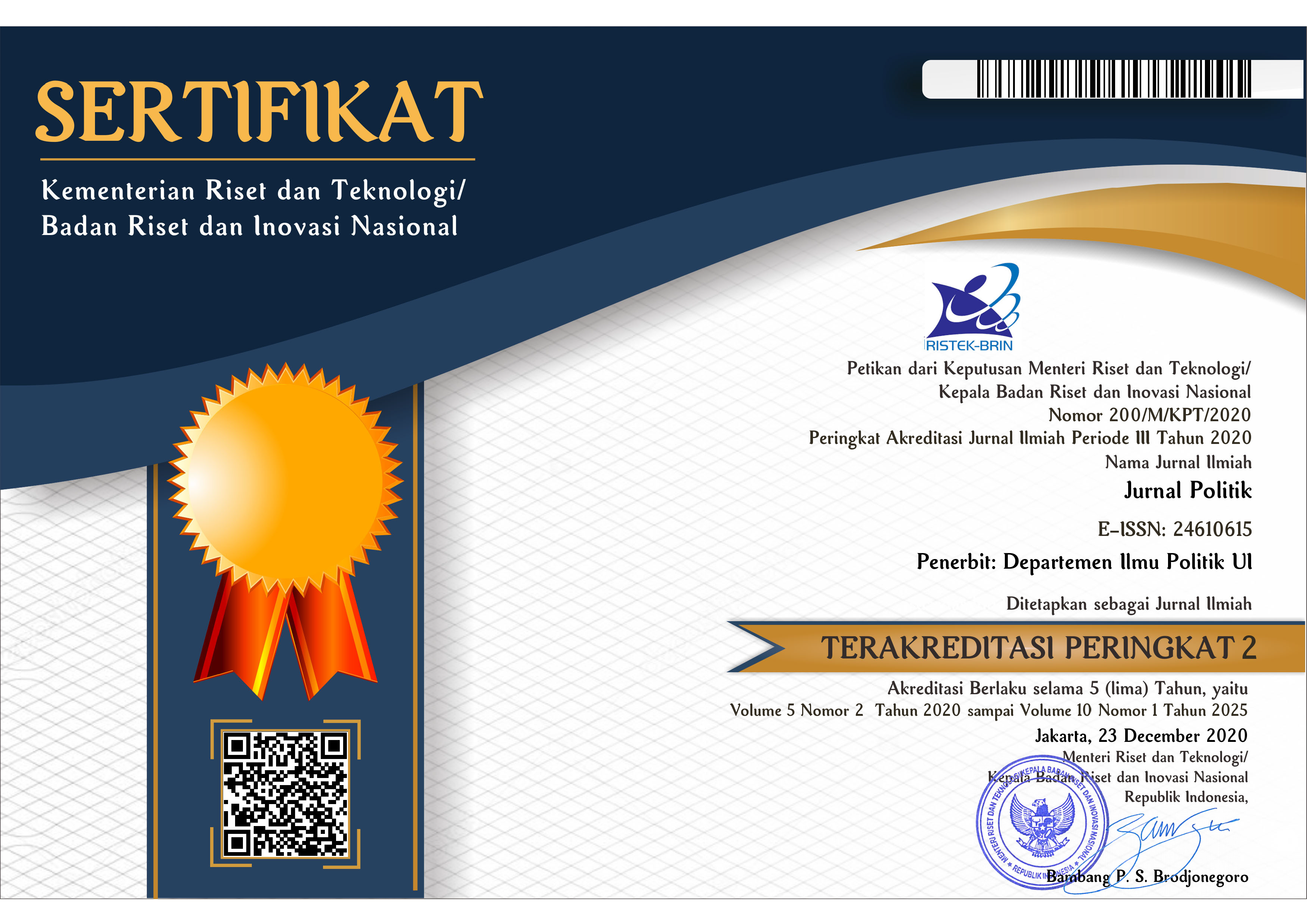Article Title
Islamic Revivalism in Indonesia: The Caliphate, Sharia, NKRI, Democracy, and the Nation-State
Abstract
This research examines Indonesian Islamic revivalist movements’ perspectives on the concepts of the nation-state and democracy. The Islamic revivalist movements studied in this research include Hizbut Tahrir Indonesia (HTI), Front Pembela Islam (FPI), Majelis Mujahidin Indonesia (MMI), and Forum Umat Islam (FUI). Following the fall of the authoritarian Suharto’s regime in 1998, Indonesia witnessed an escalation of Islamic activism whose goals revolve around the implementation of Sharia (Islamic law) and, to a certain extent, the reestablishment of a caliphate (transnational Islamic state). To this end, revivalist movements have been staging frequent mass protests, mainly addressing Indonesian government policies that are deemed un-Islamic. Some of the protests have ended violently, which implies that their Sharia and Islamic state goals have become a source of conflict in Indonesian society. This research suggests that this violent activism stems from different versions of the concept of the nationstate and democracy, which disagree with broadly accepted definitions. This research was conducted against this backdrop to analyze each movements’ perspectives on the concept of nation-state and democracy and argues that, despite each movement advocating the implementation of Sharia, their understandings of the concepts of the nation-state and democracy differ.


